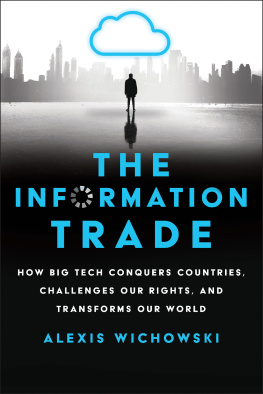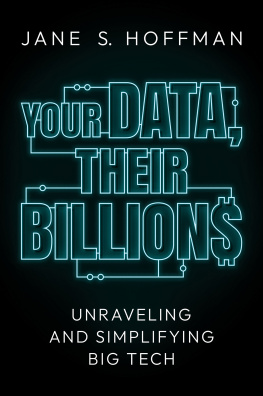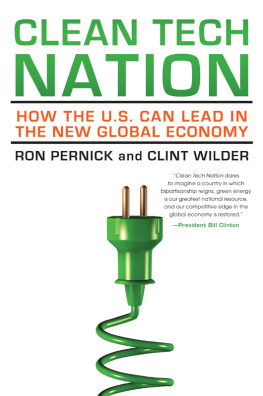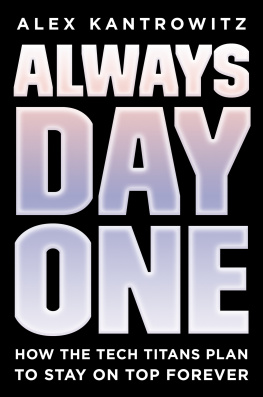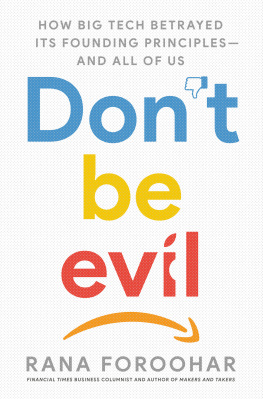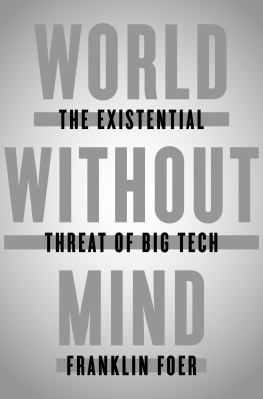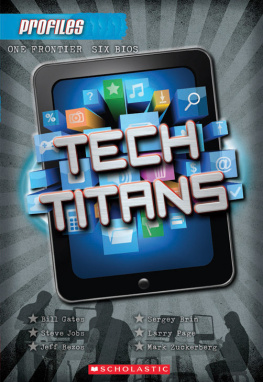Alexis Wichowski - The Information Trade: How Big Tech Conquers Countries, Challenges Our Rights, and Transforms Our World
Here you can read online Alexis Wichowski - The Information Trade: How Big Tech Conquers Countries, Challenges Our Rights, and Transforms Our World full text of the book (entire story) in english for free. Download pdf and epub, get meaning, cover and reviews about this ebook. year: 2020, publisher: HarperOne, genre: Science / Politics. Description of the work, (preface) as well as reviews are available. Best literature library LitArk.com created for fans of good reading and offers a wide selection of genres:
Romance novel
Science fiction
Adventure
Detective
Science
History
Home and family
Prose
Art
Politics
Computer
Non-fiction
Religion
Business
Children
Humor
Choose a favorite category and find really read worthwhile books. Enjoy immersion in the world of imagination, feel the emotions of the characters or learn something new for yourself, make an fascinating discovery.
- Book:The Information Trade: How Big Tech Conquers Countries, Challenges Our Rights, and Transforms Our World
- Author:
- Publisher:HarperOne
- Genre:
- Year:2020
- Rating:3 / 5
- Favourites:Add to favourites
- Your mark:
The Information Trade: How Big Tech Conquers Countries, Challenges Our Rights, and Transforms Our World: summary, description and annotation
We offer to read an annotation, description, summary or preface (depends on what the author of the book "The Information Trade: How Big Tech Conquers Countries, Challenges Our Rights, and Transforms Our World" wrote himself). If you haven't found the necessary information about the book — write in the comments, we will try to find it.
Todays major technology companiesGoogle, Facebook, Amazon, Tesla, and otherswield more power than national governments. Because of their rising influence, Alexis Wichowski, a former press official for the State Department during the Obama administration, has re-branded these major tech companies net states.
In this comprehensive, engaging, and prescriptive book, she considers their growing and unavoidable influence in our lives, showing in eye-opening detail how these net states are conquering countries, disrupting reality, and jeopardizing our futureand what we can do to regulate and reform the industry before it does irreparable harm to the way we think, how we act, and how were governed. Combining original reporting and insights drawn from more than 100 interviews with technology and government insiders, including Microsoft president Brad Smith, Google CEO Eric Schmidt, the former Federal Trade Commission chair under President Obama, the co-founder of the Center for Humane Technology , and the managing director of JigsawGoogles Department of Counterterrorism against extremis and cyber-attacksThe Information Tradeexplores what happens when we cede our power to them, willingly trading our personal freedom and individual autonomy for an easy, plugged-in existence.
Neither an industry apologist or fearmonger, Wichowski reminds us that we are not helpless victims; we still control our relationship with the technologies and the companies behind them. Most important, she shows us how we can curtail and control net states in practical, actionable waysand makes urgently clear whats at stake if we dont.
Alexis Wichowski: author's other books
Who wrote The Information Trade: How Big Tech Conquers Countries, Challenges Our Rights, and Transforms Our World? Find out the surname, the name of the author of the book and a list of all author's works by series.

